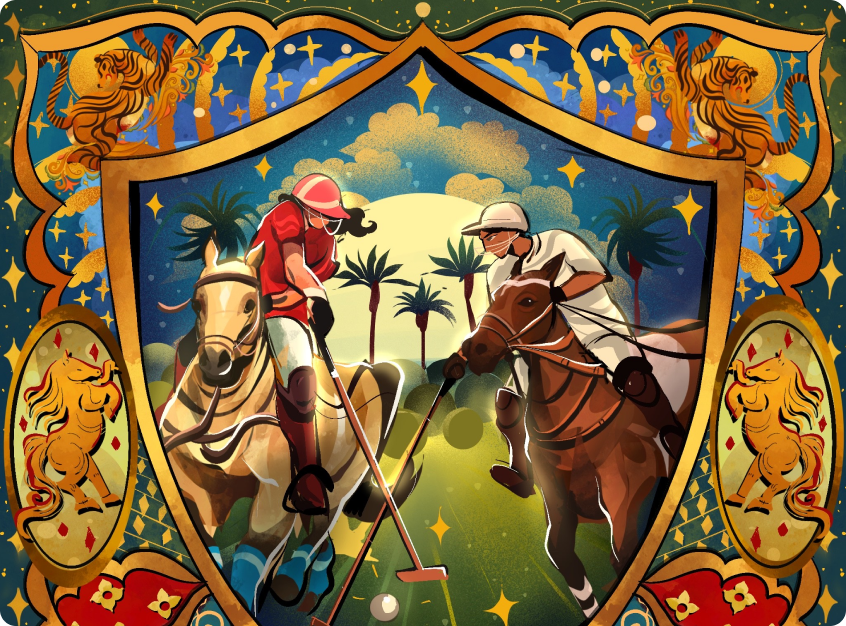Kabaddi's inception dates back to a time preceding recorded history, when cooperation was essential for survival – be it protection from wild animals or securing sustenance. This rudimentary concept evolved into Kabaddi, a sport with a lineage of over 4,000 years, earning its place as one of the world's oldest athletic pursuits. Though historical records are scarce, the game's evolution is palpable, transforming from a simple pursuit to a strategic endeavor involving tagging and breath-holding during raids.

इंडियाफर्स्ट लाइफ एलीट टर्म प्लान

इंडियाफ़र्स्ट लाइफ़ रेडियंस स्मार्ट इन्वेस्ट प्लान

इंडियाफर्स्ट लाइफ एलीट टर्म प्लान

इंडियाफ़र्स्ट लाइफ़ रेडियंस स्मार्ट इन्वेस्ट प्लान

इंडियाफ़र्स्ट लाइफ़ रेडियंस स्मार्ट इन्वेस्ट प्लान

इंडियाफ़र्स्ट लाइफ़ रेडियंस स्मार्ट इन्वेस्ट प्लान

-
टर्म इंश्योरेंस प्लान
-
टर्म प्लान्स
-
आय आधारित टर्म प्लान
-
बीमा कवरेज विकल्प
-
हर किसी के लिए टर्म इंश्योरेंस
-
सभी उम्र के लिए टर्म इंश्योरेंस कवरेज
सभी उम्र के लिए टर्म इंश्योरेंस कवरेज

-
टर्म इंश्योरेंस कैलकुलेटर
टर्म इंश्योरेंस कैलकुलेटर

-
इंडियाफर्स्ट लाइफ टर्म राइडर प्लान
इंडियाफर्स्ट लाइफ टर्म राइडर प्लान

-
टर्म प्लान्स
-
जीवन बीमा प्लान खरीदें
-
बचत प्लान्स
-
यूलिप प्लान्स
-
सेवानिवृत्ति एवं पेंशन प्लान्स
-
गारंटीड रिटर्न्स प्लान्स
-
टर्म इंश्योरेंस प्लान
-
लाइफ़ बीमा राइडर
-
ग्रुप और कॉर्पोरेट लाइफ इन्शुरन्स प्लान्स
ग्रुप और कॉर्पोरेट लाइफ इन्शुरन्स प्लान्स

-
चाइल्ड बीमा प्लान्स
चाइल्ड बीमा प्लान्स

-
बचत प्लान्स
-
उपकरण एवं कैलकुलेटर्स
-
इंश्योरेंस कैलकुलेटर्स
-
इन्वेस्टमेंट कैलकुलेटर्स
-
वित्तीय प्लान कैलकुलेटर
वित्तीय प्लान कैलकुलेटर

-
स्वास्थ्य कैलकुलेटर
स्वास्थ्य कैलकुलेटर

-
इंश्योरेंस कैलकुलेटर्स
-
सीखें
-
क्लेम्स
-
ग्राहक सेवा

कॉल के लिए उपयुक्त समय बताएं
जीवन बीमा खरीदने के लिए हमारे विशेषज्ञ की राय लें
हमें यह जानकर बहुत खुशी हुई कि आप अपने परिवार के भविष्य को वरीयता देते हैं। हमारे जीवन बीमा विशेषज्ञ आपके लिए उपयुक्त बीमा प्लान ढूंढने में मदद करेंगे। कृपया अपना विवरण साझा करें ताकि हम आपको कॉल कर सकें।
पुरुष
महिला
अन्य

अपना विवरण सबमिट करने के लिए धन्यवाद
आपकी अंतर्दृष्टि हमारी सेवाओं को बेहतर बनाने और बढ़ाने में मदद करने में महत्वपूर्ण भूमिका निभाती है।
20 Feb 2024
Kabaddi


The Ancient Origins
The Fascinating Legend
Legend has it that Kabaddi began with a child's pursuit of a sweet treat, gradually evolving into a sophisticated game. The amalgamation of chasing, hitting, and breath control gave rise to the unique and captivating aspects of Kabaddi. Though debates surround its precise origins, a prevailing belief points to Tamil Nadu in South India as the sport's birthplace.
South Asian Tapestry
Kabaddi is deeply entwined with the history and culture of South Asia, particularly with the Ayar tribal people in ancient Tamil Nadu. The game, with roots in a place called Mullai, shares similarities with Jallikattu, an activity where individuals tame bulls without physical contact. Even in antiquity, a game known as Sadugudu bore resemblances to Kabaddi. Notably, figures like Gautam Buddha and Lord Krishna are said to have engaged in Kabaddi, underscoring its presence in ancient times.
India's Pivotal Role
While Kabaddi's roots are deeply ingrained in South Asia, India played a pivotal role in propelling the sport onto the global stage. Organized competitions emerged in the 1920s, culminating in Kabaddi's inclusion in the Indian Olympic Games in 1938. The establishment of the All-India Kabaddi Federation in 1950 formalized the sport, propelling it from a village pastime to a legitimate international competition.
Global Expansion
India's influence on Kabaddi's international journey expanded over the years. The sport's showcase at the 1951 Asian Games marked a watershed moment, leading to its inclusion as a competitive event. By 1990, Kabaddi featured in the Asian Games program, showing its growing popularity worldwide . The 20th century saw Kabaddi's popularity extend beyond India's borders, with the Amateur Kabaddi Federation of India and Bangladesh recognizing it as their national game in 1972.
Conclusion
Kabaddi, born in the cradle of India, has evolved into a cherished global sport. Its journey, from a defense mechanism to a fiercely competitive game, exemplifies the profound impact of India on the world of sports. As Kabaddi continues to capture hearts worldwide, it serves as a testament to India's rich cultural heritage and enduring influence in the realm of games.
Find Your Favorite Topic
Subscribe to our Life+ newsletter for exclusive updates & smart financial guidance
विशेष अपडेट और स्मार्ट वित्तीय मार्गदर्शन के लिए हमारे लाइफ+ न्यूज़लेटर की सदस्यता लें
વિશિષ્ટ અપડેટ અને કુનેહભર્યા નાણાંકીય માર્ગદર્શન માટે અમારા લાઈફ+ ન્યૂઝલેટરને સબસ્ક્રાઈબ કરો
ప్రత్యేకమైన నవీకరణలు & స్మార్ట్ ఫైనాన్షియల్ గైడెన్స్ కోసం మా లైఫ్ + న్యూస్ లెటర్ సభ్యత్వాన్ని పొందండి.

लाइफ+ न्यूज़लैटर की सदस्यता लेने के लिए धन्यवाद!
अपने इनबॉक्स पर नज़र रखें- बढ़िया चीज़ें आपके पास आ रही हैं









